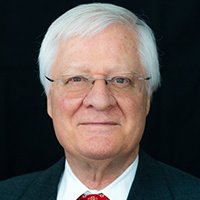 Hercules Child Custody Lawyers, California
Hercules Child Custody Lawyers, California
Sponsored Law Firm
-
 x
x

Click For More Info:
-
Law Offices of John A. Guthrie
239 Main Street Suite H Pleasanton, CA 94566» view mapDivorce & Family Law When You Have Questions, We Have Answers
Our clients are crucial to us. We put every ounce of energy into every case we handle. We are aggressive, but also motivated to resolve litigation amicably.
800-916-9420
Includes: Guardianships & Conservatorships, Custody & Visitation
Sponsored Lawyers
1-3 of 3 matches
Divorce & Family Law, Child Custody
Larry is a family law specialist, certified by the California Board of Legal Specialization, with the highest rating by Martindale-Hubbell as AV-Preeminent. He has practiced family law exclusively since 1975, and was certified as a specialist at the beginning of the certification program in 1980. In addition to family law, Larry has had successful trials in San Francisco and Monterey involving damages to real and personal property. He has also litigated securities actions and estate proceedings. Larry has experience across the entire range of family law matters, including prenuptial agreements, child custody, and family law matters involving jurisdictional, bankruptcy, immigration, and tax issues. Larry was born in Reno, Nevada October 23, 1941, attended Reno High School (winning honors in debating and the state championship in extemporaneous speaking), and then attended Northwestern University where he was on the Inter Fraternity Council and acted as its Student Senate Representative and earned a B.A in Philosophy. He attended Hastings College of Law, was on the Moot Court Board, and graduated with a J.D in 1967. He then attended New York University, and earned an LL.M in Corporation Law. After returning to San Francisco, Larry became a partner in Cushing, Cullinan, Hancock and Rothert, before beginning his own law practice in family law. Larry's experience in family law grew with its evolution into one of the most complex, demanding areas of law practice. As part of this expanded range of experience, Larry became interested in the relationship between the management of complex family law issues of a more personal nature, particularly those involving child custody, and began to include a practice of regular consultation with therapists as a way to obtain better understanding of issue management in especially difficult situations. With his wife, Jan C. Thorpe, PhD, and Ron Grassi, now retired, Larry conducted a successful series of continuing education programs in San Francisco designed to expand the family law practitioner's use of consulting therapists to bring greater insight into family law issues, particularly in child custody cases. Larry continues to be fascinated with the variety and complexity of family law cases and derives great satisfaction in solving problems and bringing cases to a settled conclusion without litigation, if possible. It has been particularly rewarding for Larry to be able to practice family law with his sons, his daughter in law and his wife, who acts as a consultant, to whom Larry gives primary credit for engineering such a successful marriage of work and family life. Larry has been active in local community affairs, and is the past President of the Kensington Improvement Council. He is currently on the board of Directors of the Pacific Chamber Symphony (www.pacificchambersymphony.org).
(more)


 John Guthrie Pleasanton, CA
John Guthrie Pleasanton, CA AboutLaw Offices of John A. Guthrie
AboutLaw Offices of John A. Guthrie Practice AreasSpecializations
Practice AreasSpecializations

